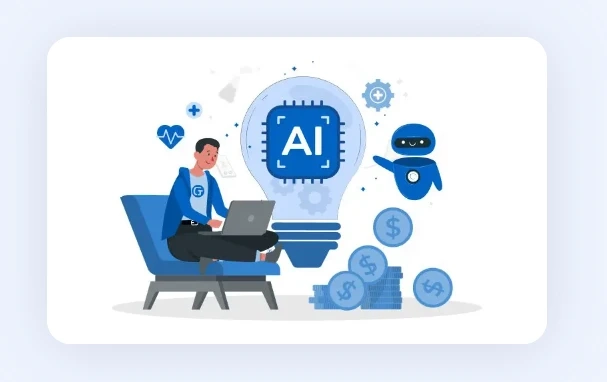Introduction
In the ever-evolving landscape of healthcare, the implementation of Artificial Intelligence (AI) stands out as a revolutionary force. This article delves into the intricacies of the cost of implementing AI in healthcare, shedding light on the challenges, benefits, and future trends.
The Growing Need for AI in Healthcare
As the healthcare system faces unprecedented challenges, the need for innovative solutions has never been more apparent. This section explores the current issues and potential benefits that AI brings to the table.
Key Areas of AI Implementation
AI's impact extends across various healthcare domains, from diagnosis and treatment planning to drug discovery and administrative tasks. Understanding these key areas is crucial to grasping the full scope of AI's transformative power.
Overcoming Implementation Challenges
Implementing AI comes with its set of challenges, including initial costs, resource allocation, and integration hurdles. Discover strategies to overcome these obstacles and ensure a seamless transition.
Real-world Examples of AI Success
Concrete examples illustrate AI's success in healthcare, showcasing improved patient outcomes and enhanced operational efficiency. These success stories offer a glimpse into the tangible benefits of AI implementation.
The Impact on Patient Care
Explore the direct impact of AI on patient care, from personalized treatment plans to faster and more accurate diagnostics. Witness how AI contributes to a more patient-centric approach in healthcare.
Cost Analysis
Delve into the financial aspect of AI implementation, weighing the initial investment against long-term savings. Uncover the Return on Investment (ROI) dynamics in the healthcare sector.
Regulatory Compliance and Ethical Considerations
As AI becomes integral to healthcare, ensuring regulatory compliance and ethical use is paramount. This section navigates the complexities of patient data privacy and regulatory frameworks.
Addressing Skepticism and Building Trust
Overcoming skepticism within the healthcare community and building trust with patients are crucial steps in successful AI implementation. Discover effective communication strategies to gain acceptance.
Future Trends in AI Implementation
Explore the evolving landscape of AI in healthcare, from advancements in machine learning algorithms to the integration of AI with other emerging technologies. Stay ahead of the curve with insights into future trends.
FAQs
How much does it cost to implement AI in healthcare?
The cost of implementing AI in healthcare varies based on factors like the scope of implementation and the chosen AI solutions. It typically involves initial investment but promises long-term savings.
What challenges do healthcare providers face in adopting AI?
Healthcare providers encounter challenges such as resource allocation, staff training, and integrating AI with existing systems. Overcoming these hurdles is essential for successful AI adoption.
Can AI completely replace human healthcare professionals?
AI complements, rather than replaces, human healthcare professionals. It enhances their capabilities, allowing for more efficient and accurate healthcare delivery.
Is patient data safe with AI implementations?
Ensuring patient data privacy is a top priority in AI implementations. Strict adherence to data protection protocols and compliance with regulations safeguards patient information.
How do healthcare organizations ensure ethical AI use?
Ethical AI use is ensured through robust guidelines, transparent communication, and adherence to regulatory frameworks. Healthcare organizations prioritize ethical considerations in AI implementation.
What are the future prospects of AI in healthcare?
The future of AI in healthcare looks promising, with advancements in algorithms and integration with emerging technologies. Expect continued innovation, improving patient care and operational efficiency.
Conclusion
In conclusion, the cost of implementing AI in healthcare pales in comparison to the transformative benefits it brings. Embracing AI is not just a necessity; it's a leap into a future where healthcare is more precise, efficient, and patient-focused.



